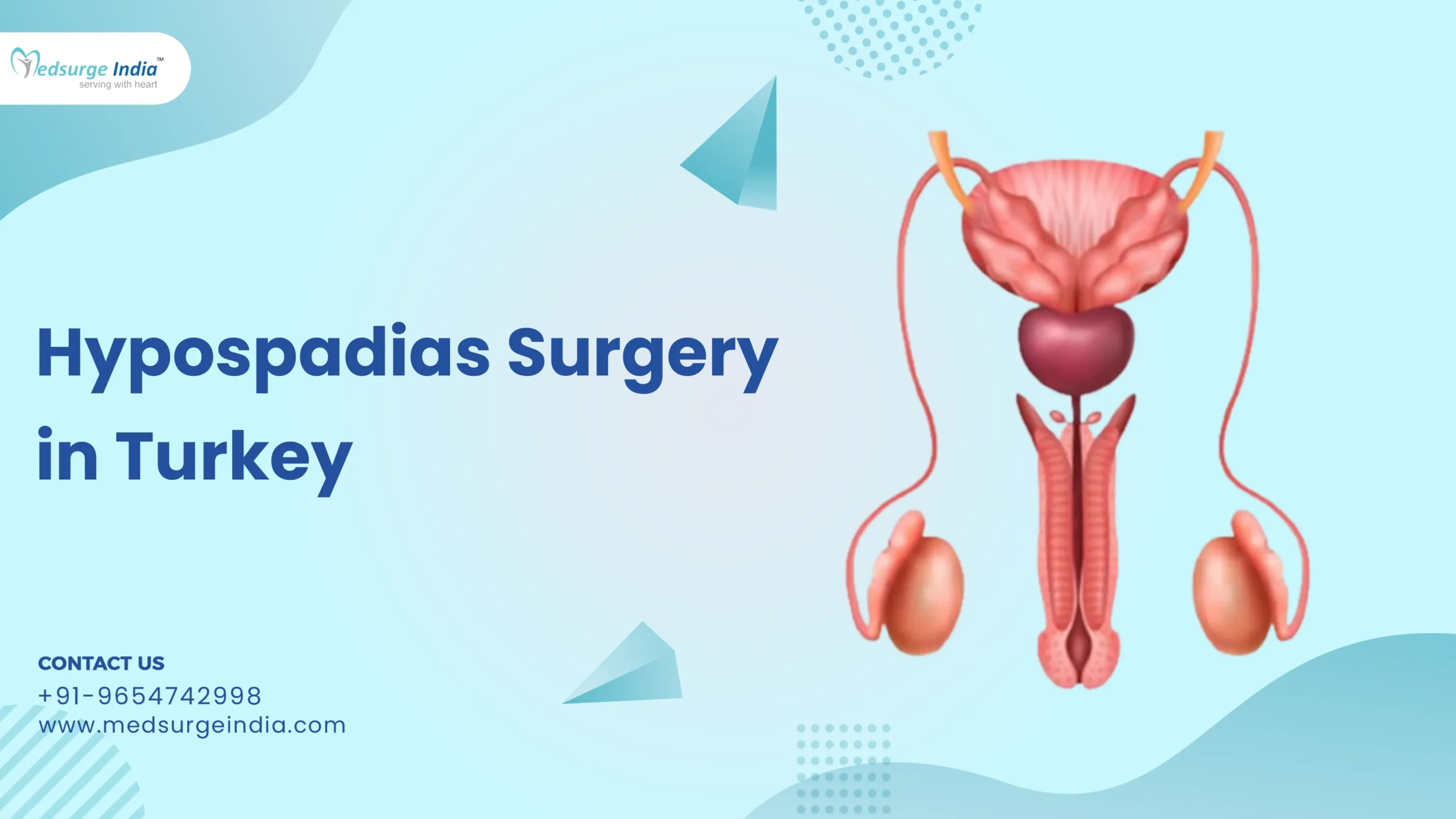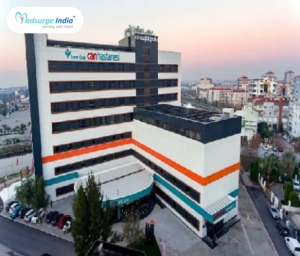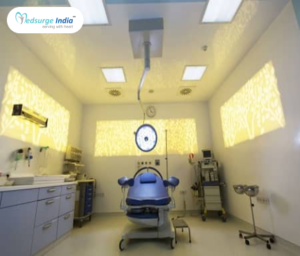Hypospadias Surgery Cost in Turkey
Unlock Exclusive Discount : Your Gateway to Premium Healthcare with Medsurge India Health Value Card.

Unlock Exclusive Discount : Your Gateway to Premium Healthcare with Medsurge India Health Value Card.


Hypospadias is a congenital condition affecting males, characterized by an abnormal placement of the urethral opening during infancy. Instead of being located at the tip of the penis, the urethra may open in various positions along the shaft, potentially as far down as the base. Typically, this condition is addressed through a surgical procedure referred to as hypospadias repair.
One of the key concerns for patients is the expense associated with hypospadias surgery, alongside other important considerations such as the appropriate age for the procedure, post-surgery expectations, and ways to promote healing. This page will delve into the costs of hypospadias surgery in Turkey, the factors that affect pricing, the optimal age for undergoing the surgery, and useful recovery strategies to achieve the best results.
The expenses associated with hypospadias surgery in Turkey can range from 3000 USD to 5000 USD. This cost given here is just a general cost as there will be other factors that can affect hypospadias surgery cost in Turkey. Below are some of the reasons which can affect hypospadias surgery cost in Turkey.
Several key factors influence the total expense of hypospadias surgery cost in Turkey:
Severity of Hypospadias: The degree and the severity can play a crucial role in determining costs. Less severe forms of hypospadias, where the urethral opening is located near the tip of the penis, are typically simpler and quicker to repair compared to more severe cases. In instances that involve complex procedures, such as tissue grafting or advanced reconstructive methods, expenses tend to rise due to longer surgical durations and the higher level of expertise required.
Type of Surgical Technique: Various surgical techniques exist for repairing hypospadias, including the MAGPI (meatal advancement and glanuloplasty), the TIP (tubularized incised plate), and more intricate grafting approaches. The selected technique is contingent upon the specific case and often influences the overall cost. Procedures that necessitate advanced reconstructive methods, specialized tools, or extended operation times will generally incur higher fees.
Age at Surgery: The recommended age for undergoing hypospadias surgery is usually between 6 and 18 months. Performing the surgery during this timeframe helps minimize psychological effects and facilitates smoother recovery. However, if the surgery is postponed in childhood or adolescence, costs may escalate due to increased complexity and the need for more extensive anesthesia.
Surgeon’s Expertise: Surgeons who specialize in pediatric urology or hypospadias repair typically command higher fees due to their specialized training. Opting for a highly skilled surgeon can decrease the risk of complications and the need for additional surgeries, potentially leading to cost savings over time.
Hospital or Clinic Charges: The fees charged by hospitals significantly affect the overall cost. Larger hospitals with dedicated pediatric departments may have higher expenses due to their advanced resources and expertise, while private clinics might offer more affordable rates but could lack certain support services.
Anesthesia and Additional Medical Care: The costs associated with anesthesia can vary based on the duration and complexity of the procedure. Furthermore, if the child requires an overnight stay in the hospital, these additional charges will be included in the final bill for hypospadias surgery cost in Turkey.
| Cities | Prices |
| Istanbul | $3000 to $5000 |
| Antalya | $2700 to $4500 |
| Izmir | $2700 to $4500 |
| Ankara | $2900 to $4700 |
Hypospadias is a congenital condition that impacts male genital development and is typically addressed through a surgical procedure known as hypospadias surgery. This condition occurs when the urethra, the duct responsible for the expulsion of urine and sperm, does not develop properly within the penis. In a healthy male, the external opening of the urethra, called the Meatus, is situated at the tip of the penis. However, in infants with hypospadias, the meatus is positioned abnormally along the shaft of the penis. Potential locations for the meatus include:
Hypospadias surgery aims to rectify this congenital defect in newborn boys. The condition arises when the urethra is improperly formed, leading to its opening not being located at the tip of the penis. Instead, it may appear anywhere from just below the glans to the scrotum. In male fetuses, the development of the urethra begins around the 8th week of gestation and is typically completed by the 14th week.
Your healthcare professionals will classify hypospadias based on the location of the urethral opening:
The ideal age for correcting hypospadias in boys is typically between 6 months and 2 years. This outpatient procedure allows the child to return home the same day, eliminating the need for an overnight hospital stay. Pediatricians advise against performing hypospadias surgery on newborns, as additional foreskin may be necessary for effective correction.
Hypospadias correction is generally a successful procedure with favorable outcomes. It is advisable to consult healthcare professionals if reconstruction is needed and to ensure that the patient is well informed about the surgery and any potential complications.
Turkey has emerged as a leading choice for hypospadias surgery, thanks to its skilled pediatric urologists, state-of-the-art medical facilities, and cost-effective treatment options. Surgeons in Turkey possess extensive training, often holding international certifications and specializing in intricate reconstructive procedures.
The hospitals feature advanced technology that facilitates accurate diagnoses and enhances the likelihood of successful results. Furthermore, the expenses associated with hypospadias surgery in Turkey are considerably lower than those in Western nations, making it an appealing option for patients from abroad. Many healthcare institutions also provide tailored care, multilingual assistance, and help with travel logistics, ensuring a smooth and pleasant experience for patients and their families.
Also Read:- Top Urology Doctors in Turkey
Hypospadias surgery is a widely performed and effective procedure for repositioning the urethra in male infants. The cost of this surgery can vary significantly based on factors such as the severity of the condition, the specific surgical method required, the age of the patient, and the surgeon’s expertise. Understanding these factors can help families with financial constraints make informed decisions.
The ideal age for surgery is between 6 to 18 months, which typically leads to successful recovery and long-term benefits. Following recommended recovery guidelines is crucial to ensure that pain does not hinder the healing process. Adequate rest during this time is essential to facilitate recovery and reduce the likelihood of needing additional corrective surgery.
A: The surgery to correct hypospadias is considered safe and typically yields favorable results. For mild cases, only one surgical intervention is usually necessary, while more severe instances may require additional procedures.
A: The ideal age for performing hypospadias correction in boys is generally between 6 months and 2 years. This procedure is typically done on an outpatient basis, meaning the child usually does not need to stay overnight in the hospital.
A: Hypospadias can lead to improper development of the foreskin and may interfere with normal urine flow. In some cases, it can also affect sperm flow later in life, potentially resulting in infertility.
A: While hypospadias itself does not directly affect the kidneys, severe cases that involve urinary tract abnormalities, such as urethral strictures or blockages, could potentially influence kidney function. Regular medical check-ups and proper management are important to address any renal issues that may arise.
A: Recovery time following hypospadias surgery can vary, but typically, the initial healing phase lasts a few weeks. Children are usually able to gradually return to their normal activities, although they should avoid vigorous physical exertion during the early recovery period. Full recovery may take several months, and it is crucial to have regular follow-up appointments with a healthcare provider to monitor healing and address any issues.

Endourologist
Consultant
20 years of experience
Derindere Hospital, Istanbul
View Doctor
Urologist
Consultant
11 years of experience
Private Duygu Hospital
View Doctor
Urologist
Consultant
14 years of experience
Kolan International Hospital, Istanbul
View Doctor
Urologist
Professor
15 years of experience
Okan University Hospital, Tuzla
View Doctor
Urologist
Consultant
11 years of experience
Medipol University Hospital, İstanbul
View DoctorUrologist and Renal Transplant Specialist
Professor
10 years of experience
KOC University Hospital, Istanbul
View Doctor
Urologist and Renal Transplant Specialist
Professor
15 years of experience
KOC University Hospital, Istanbul
View Doctor
Urologist
Consultant
20 years of experience
Anadolu Medical Center, Kocaeli, Istanbul
View Doctor
Urologist
Consultant
15 years of experience
Kolan International Hospital, Istanbul
View Doctor









By using our site, you agree to our Terms and Conditions, Privacy Policy and Refund Policy. Medsurgeindia does not provide medical advice, diagnosis, or treatment. The information provided on this site is designed to support, not replace, the relationship that exists between a patient/site visitor and his/her existing physician. We also Accept International Payments.

Copyright © 2025 NSM ONLINE SOLUTIONS PRIVATE LIMITED. All rights reserved.